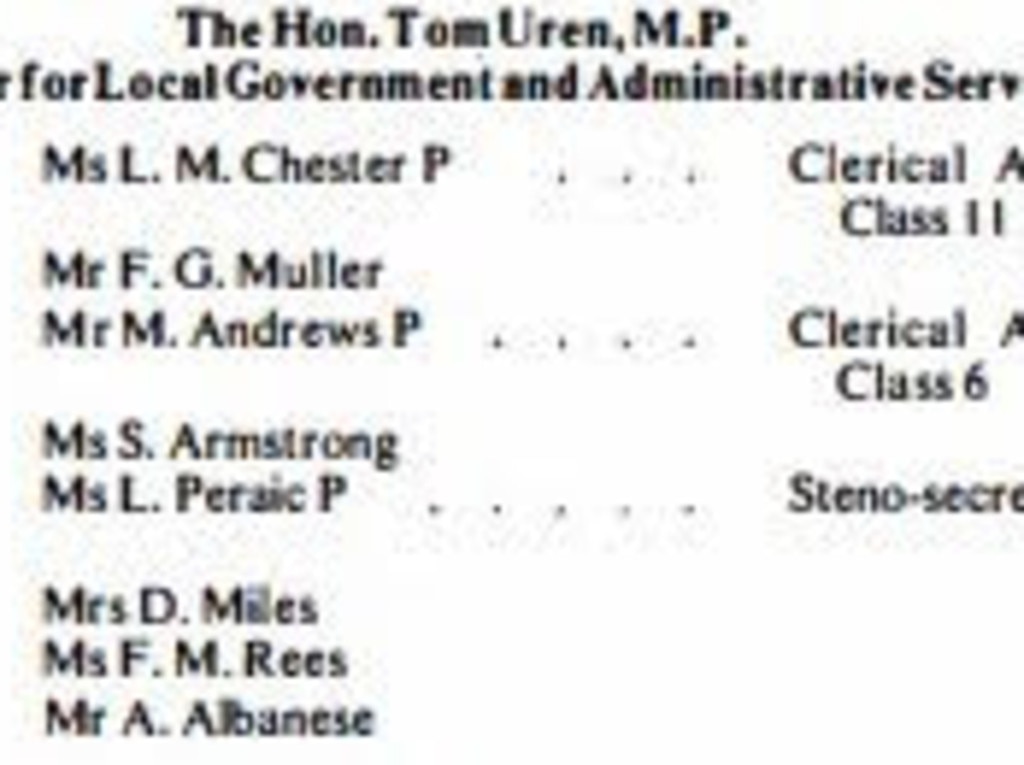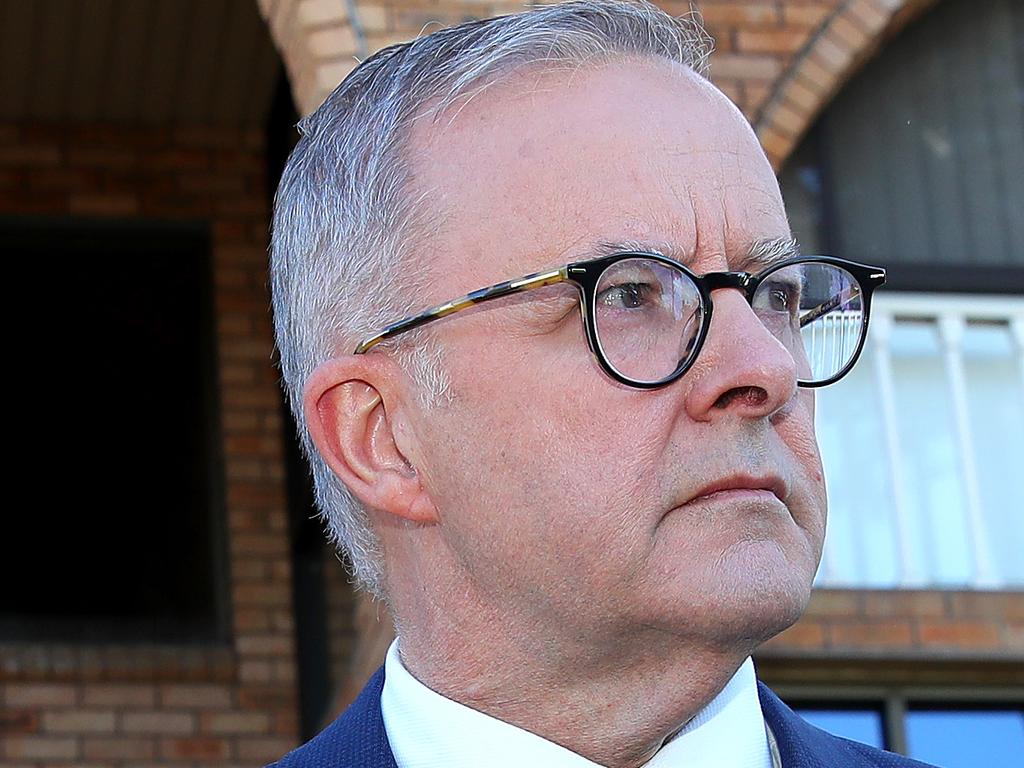Election 2022: Anthony Albanese will replace the nation’s top public servant if he wins
Anthony Albanese will replace the secretary of the Department of the Prime Minister and Cabinet, Philip Gaetjens, if he wins the federal election in May.

Anthony Albanese will replace the nation’s top public servant, Philip Gaetjens, if he wins the federal election, saying the long-time aide to Scott Morrison has politicised the role.
The Opposition Leader said he would lead a government that was disciplined and focused, observed proper cabinet processes and would not hesitate to take on Labor factions and union affiliates if they operated counter to “the national interest”.
Mr Albanese also said he had learnt the hard lessons of the often divided and dysfunctional Rudd-Gillard government that was bundled out of office after just two terms.
“I am still a friend of Kevin Rudd and Julia Gillard, but the weakness was that we weren’t able to maintain a long-term Labor government, which is how you change the country permanently,” he told The Weekend Australian.
“Just as the Hawke government had benefited from the experience of the Whitlam government, a government that I lead, if I have the opportunity to do so, will benefit from the experience of Kevin Rudd and Julia Gillard.”
Mr Albanese said Mr Gaetjens, who has been secretary of the Department of Prime Minister and Cabinet since 2019, made his ongoing position “very difficult” by conducting an inquiry into what the Prime Minister’s staff knew of the alleged rape of Brittany Higgins at Parliament House in 2019.
“It would be reasonable to assume that the head of PM&C’s position has been politicised,” he said. “He has allowed that to happen. That he allowed himself to be appointed into a review into what the Prime Minister’s office knew about alleged criminal allegations is, I think, inexplicable for a senior public servant.”
Mr Gaetjens is a former chief of staff to Peter Costello and Scott Morrison when they were treasurers, and has been a regular target of Labor criticism since he was appointed to lead the public service by the Prime Minister.
Mr Albanese has had a difficult first week on the campaign trail as he aims to lead the ALP to victory on May 21. He has been criticised for getting the unemployment rate wrong, and having to correct himself on the future of offshore detention under a Labor government and whether his urgent-care clinics policy has been fully costed by the Parliamentary Budget Office.
But Mr Albanese defended Labor’s policy agenda as one “for the times” that is “smart” rather than “small” and insisted it is about promising what is achievable in a three-year term but with a goal to change the country longer-term.
After serving as a cabinet minister and briefly deputy prime minister during the often disorderly and chaotic Rudd-Gillard government, Mr Albanese acknowledged it was “a difficult period” and he had thought “a lot” about how to improve governing if Labor returned to office.
The Labor leader has insisted on a disciplined process within shadow cabinet that would follow in government. He said there would not be a repeat of the so-called “gang of four” – that comprised Mr Rudd, Ms Gillard, Wayne Swan and Lindsay Tanner – during the Rudd government.
“What I don’t have is a smaller group that meets and then is locked in before the shadow cabinet,” Mr Albanese said. “Shadow ministers are entitled to bring forward submissions without it being ticked off centrally by my office. I’ve conducted the processes that have encouraged people to have genuine debate.”
Mr Rudd was often late to cabinet meetings or cancelled appointments at the last minute, which often made governing processes shambolic. “I am on time for meetings,” Mr Albanese said. “We have meetings that are properly scheduled.”
Asked for his conception of national leadership and the role of prime minister, Mr Albanese said he would seek to unify the nation, put Australia’s interests above party or union interests, and be accountable for his actions.
“Prime ministers at their best seek to bring the country together and seek unity rather than division and accept responsibility,” he said. “People want a national leader that rises above the day-to-day frays.”
In response to suggestions he was not well known by voters and had jettisoned many of the radical policy ideas he had while Young Labor president in the 1980s and NSW Labor assistant secretary in the 1990s, Mr Albanese said he had changed and grown as a person.
“Tom Uren was my mentor,” he said. “He said to me that you’ve got to learn something new every day and you’ve got to grow every day. I’ve tried to grow.
“I don’t have all the same views I had when I was 20 or 25. That’s a good thing. But, I also think, as a person I tried to grow.”








To join the conversation, please log in. Don't have an account? Register
Join the conversation, you are commenting as Logout